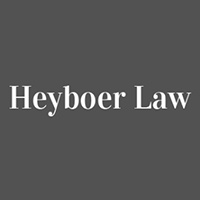Sandusky Bankruptcy & Debt Lawyer, Michigan
Sponsored Law Firm
-
 x
x

Click For More Info:
-
Marrs & Terry, PLLC
6553 Jackson Road Ann Arbor, MI 48103» view mapBankruptcy & Debt Personalized, Efficient Counsel
Marrs & Terry, PLLC have been helping individuals face a variety of legal challenges, including bankruptcy, estate planning and administration, and family law.
800-862-7221
David R. Heyboer
✓ VERIFIEDCriminal, DUI-DWI, Bankruptcy & Debt, Personal Injury, Real Estate
When you've been arrested and facing criminal charges, there can be serious consequences for you and your family. Don't face your criminal charges alo... (more)
Chad R. Partaka
Real Estate, Social Security, Estate Planning, Credit & Debt
Status: In Good Standing Licensed: 26 Years
Nathan Paul Fuglestad
Real Estate, Bankruptcy & Debt, Personal Injury, Trusts
Status: In Good Standing Licensed: 33 Years
Andrew R. Lockard
Estate, Family Law, Criminal, Credit & Debt
Status: In Good Standing Licensed: 21 Years
Walter R. Warren
Foreclosure, Social Security, Elder Law, Credit & Debt
Status: In Good Standing Licensed: 53 Years
Nadine Marie Koppin
Landlord-Tenant, Divorce, Contract, Credit & Debt
Status: In Good Standing Licensed: 8 Years
Dawn Marie Young
Estate Planning, Labor Law, Elder Law, Collection
Status: In Good Standing Licensed: 9 Years


 Tricia Terry Ann Arbor, MI
Tricia Terry Ann Arbor, MI AboutExperienced Michigan Lawyer
AboutExperienced Michigan Lawyer Articles
Articles

